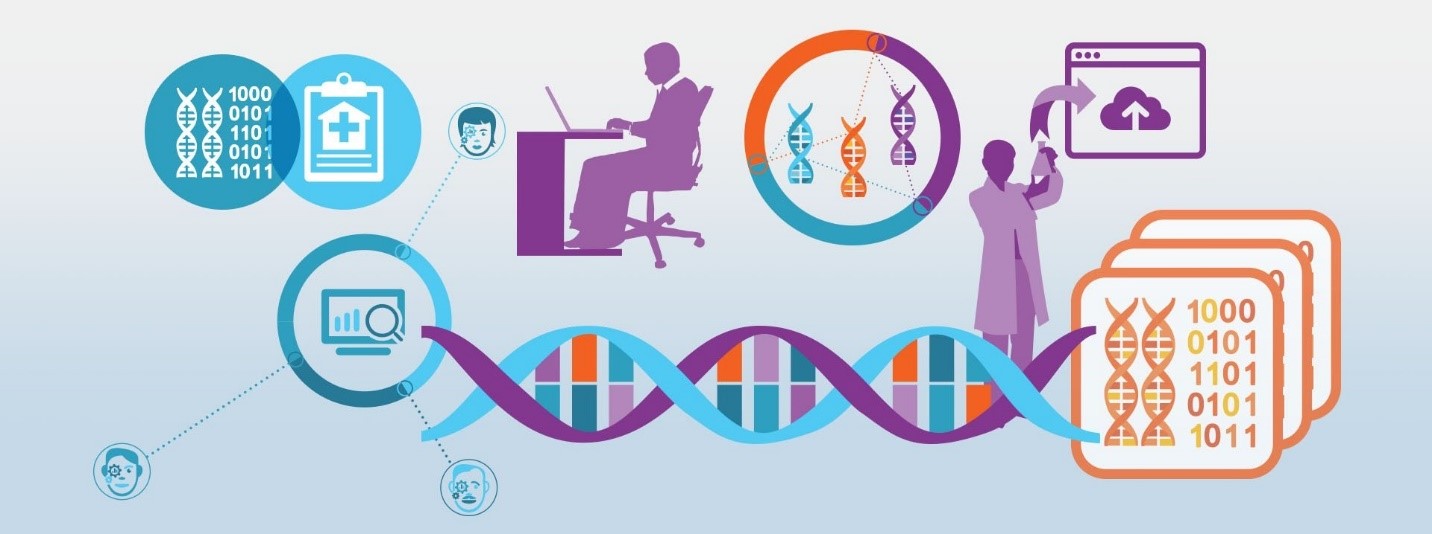In recent years, the intersection of artificial intelligence (AI) and personalized medicine has sparked a revolution in healthcare. This transformative synergy promises to tailor medical treatments to individual patients more precisely than ever before, ushering in a new era of customized healthcare. This informative article delves into the profound impact of AI on personalized medicine,
In recent years, the intersection of artificial intelligence (AI) and personalized medicine has sparked a revolution in healthcare. This transformative synergy promises to tailor medical treatments to individual patients more precisely than ever before, ushering in a new era of customized healthcare. This informative article delves into the profound impact of AI on personalized medicine, exploring the benefits, challenges, and future prospects of this burgeoning field.
Understanding Personalized Medicine
Personalized medicine, also known as precision medicine, is an innovative approach to disease treatment and prevention that considers individual variability in genes, environment, and lifestyle. Instead of a one-size-fits-all methodology, personalized medicine aims to tailor medical care to the unique genetic makeup and circumstances of each patient. This approach is particularly beneficial in treating complex diseases such as cancer, diabetes, and cardiovascular disorders.
The Role of AI in Personalized Medicine
AI, with its ability to analyze vast datasets and identify patterns beyond human capability, plays a pivotal role in advancing personalized medicine. Here are some key areas where AI is making a significant impact:
1. Genomic Analysis
AI algorithms can process and analyze genomic data at an unprecedented scale and speed. By identifying genetic mutations and variations, AI can help predict an individual’s susceptibility to certain diseases and their likely response to specific treatments. For example, AI-driven genomic analysis has been instrumental in identifying biomarkers for cancer, enabling more precise and effective treatment plans.
2. Predictive Analytics
Predictive analytics powered by AI can forecast disease progression and patient outcomes based on historical and real-time data. By leveraging machine learning models, healthcare providers can anticipate complications, recommend preventive measures, and optimize treatment strategies. This proactive approach can significantly improve patient outcomes and reduce healthcare costs.
3. Drug Discovery and Development
AI is revolutionizing the drug discovery process by accelerating the identification of potential drug candidates. Machine learning algorithms can analyze vast chemical libraries and predict the efficacy and safety of new compounds. This not only shortens the time required for drug development but also reduces the costs associated with bringing new therapies to market. Personalized medicine benefits from AI-driven drug discovery by ensuring that new treatments are tailored to specific genetic profiles.
4. Medical Imaging and Diagnostics
AI-powered image recognition systems are enhancing the accuracy and efficiency of medical imaging and diagnostics. These systems can analyze medical images, such as X-rays, MRIs, and CT scans, to detect abnormalities and assist in early diagnosis. In personalized medicine, AI-driven imaging tools can help identify disease subtypes and guide treatment decisions based on individual patient characteristics.
5. Electronic Health Records (EHRs)
AI can extract valuable insights from electronic health records (EHRs) by analyzing patient histories, treatment outcomes, and clinical notes. This information can be used to develop personalized treatment plans and identify patients who may benefit from specific interventions. Moreover, AI can assist in identifying patterns and trends within large patient populations, contributing to the development of more effective and targeted therapies.

Picture by: Yandex.com
Benefits of AI in Personalized Medicine
The integration of AI into personalized medicine offers numerous benefits, including:
1. Improved Treatment Outcomes
By tailoring treatments to individual patients, personalized medicine can enhance the effectiveness of therapies and reduce adverse effects. AI’s ability to analyze genetic and clinical data ensures that patients receive the most appropriate and effective treatments for their specific conditions.
2. Early Disease Detection
AI-driven predictive analytics and diagnostic tools enable the early detection of diseases, allowing for timely intervention and improved prognosis. Early detection is particularly crucial in conditions like cancer, where early-stage treatment significantly increases survival rates.
3. Cost-Effective Healthcare
Personalized medicine, supported by AI, can reduce healthcare costs by minimizing trial-and-error approaches to treatment. By identifying the most effective therapies from the outset, healthcare providers can avoid unnecessary treatments and hospitalizations, ultimately lowering overall expenses.
4. Enhanced Patient Engagement
AI-powered personalized medicine empowers patients to take an active role in their healthcare. With access to tailored treatment plans and predictive insights, patients can make informed decisions about their health and engage in preventive measures.
Challenges and Ethical Considerations
While the potential of AI in personalized medicine is immense, several challenges and ethical considerations must be addressed:
1. Data Privacy and Security
The use of AI in personalized medicine requires access to vast amounts of sensitive patient data. Ensuring the privacy and security of this data is paramount. Healthcare providers and AI developers must implement robust data protection measures to safeguard patient information.
2. Bias and Fairness
AI algorithms can inadvertently introduce bias into healthcare decisions, leading to disparities in treatment outcomes. It is essential to develop and validate AI models that are fair and unbiased, taking into account diverse patient populations.
3. Regulatory and Legal Frameworks
The integration of AI into personalized medicine necessitates the establishment of clear regulatory and legal frameworks. These frameworks should ensure the safety, efficacy, and ethical use of AI technologies in healthcare.
4. Interdisciplinary Collaboration
The successful implementation of AI in personalized medicine requires collaboration between various stakeholders, including healthcare providers, researchers, data scientists, and policymakers. Interdisciplinary collaboration is crucial for addressing technical, ethical, and regulatory challenges.
Future Prospects
The future of AI in personalized medicine is promising, with ongoing advancements poised to further transform healthcare. Here are some potential developments:
1. Integration of Multi-Omics Data
The integration of multi-omics data, including genomics, proteomics, and metabolomics, will provide a comprehensive understanding of disease mechanisms. AI will play a vital role in analyzing and interpreting this complex data, leading to more precise and personalized treatments.
2. Real-Time Monitoring and Intervention
Wearable devices and remote monitoring technologies, powered by AI, will enable real-time tracking of patient health. This continuous monitoring will facilitate early intervention and personalized adjustments to treatment plans, improving patient outcomes.
3. AI-Driven Clinical Trials
AI can optimize the design and execution of clinical trials by identifying suitable participants, predicting outcomes, and monitoring patient responses. This will accelerate the development of new therapies and ensure that clinical trials are more efficient and cost-effective.
4. Global Health Impact
AI-powered personalized medicine has the potential to address global health disparities by providing tailored treatments to underserved populations. By leveraging AI, healthcare providers can deliver high-quality care to patients in remote and resource-limited settings.
Conclusion
The impact of AI on personalized medicine is profound and far-reaching. By harnessing the power of AI, healthcare providers can deliver more precise, effective, and cost-efficient treatments tailored to individual patients. While challenges and ethical considerations remain, the future of AI in personalized medicine holds immense promise. As technology continues to advance, the synergy between AI and personalized medicine will undoubtedly revolutionize healthcare, improving patient outcomes and transforming the way we approach disease treatment and prevention.
















